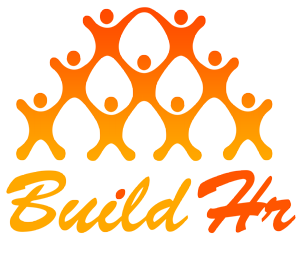ZOHO Human Resource Management
What is an HRMS?
A Human Resource Management System, usually known as HRMS, is a software program that allows HR professionals to automate all-important HR operations including onboarding, talent management, performance assessments, attendance monitoring, and more.
It allows the HR department to concentrate on more important business issues such as retention of staff, work-life balance, and team-building. Since all core HR activities are centralized in a single structure, it is simple and easy to make successful business decisions.
It includes
● Zoho People
● Zoho recruit
● Zoho Payroll
Why is an HRMS needed?
There are many generational and Gen Z workers in the modern workplace, and it is becoming more technology-oriented, versatile, and collaborative. expect those expectations to be met by the HR processes in their company. The right human resource software will help.
An effective Human Resource department is behind any productive and successful company. You make sure your goals are achieved by engaging the most valuable asset of your company’s employees! Employing the right applicant, monitoring employee information, tracking time, handling employee benefits, monitoring employee efficiency and much more is the duty of the HR staff. Planning to run a small or medium-sized business, the use of an HR software can help you save time and money in a lot of ways.
Modules of an HRMS?
If looking for an HRMS make sure it has some important modules to get the most out of it:
1. Employee Onboarding
To introduce your new employees to your organization, an onboard management system is required. A well-designed onboarding process provides a clear image of the values and positive, culture and priorities, helping to grow accustomed to new employees to them.
2. Employee Database Management
This module allows you to build a consolidated database and ensure that all the employee data you need is just a click away. This prevents redundancy of the incoherence and details. Data access permissions can be allowed based on the venue, job role, assignment, and more.
3. Timesheets
Timesheets can be of great benefit to organizations dealing with numerous clients and projects. Employees will log their hours work online, and automatically submit them for approval. This helps you to generate precise customer bills and process your payroll on time.
4. Document Management System
Having an online document management system prevents you from having to go through multiple files or emails. With this, all your personal and common HR documents can be saved in a central repository.
5. Employee Self-service
This feature provides a password-protected self-service portal for employees to access all the information that is necessary for them.
6. Reports and Analytics
You can adopt a data-driven approach with analytics and reports, which can help you understand the precise actions of your employees. This helps you to recognize any issues and build solutions before they worsen and trigger more issues. Decisions based on data prevent implicit bias.
7. Exit Management
This provides the workers with a smooth exit experience. With a checklist, it ensures that you and your employees complete all the required exit processes.
How does an HRMS benefit your organization?
Getting the right HRMS that meets your organization’s needs can be of great benefit to HR practitioners, staff, and investors. Here are some of the benefits of using an HRMS for handling the workforce:
● Reduces the amount of paperwork as all records, forms, and reports are stored online and handled. It lowers the cost of using paper and physical storage.
● Through automating data collection, processing, and documentation, it avoids errors in employee data.
● Save a considerable amount of time as data about staff is easily accessible. Even when you are outside of the workplace, you will locate the data as it is stored on a cloud server.
● Allows you to create multiple workflows to manage both routine and repetitive tasks at once. This saves a considerable amount of time and significantly increases HR department efficiency.
● Eases payroll management as attendance and time-off data is effectively stored online.
● Improves data security, as every piece of information is secured by a password.
● Enhances employee morale and satisfaction by allowing managers to provide and receive feedback. Employees can ask questions through the internal inquiry system.
● Allows employees to mark their attendance with suitable IP. They can also apply for time-off through their mobile devices.
As you can see, an HRMS plays a major role in increasing efficiency, commitment, morale, and more of the organization’s employees.



